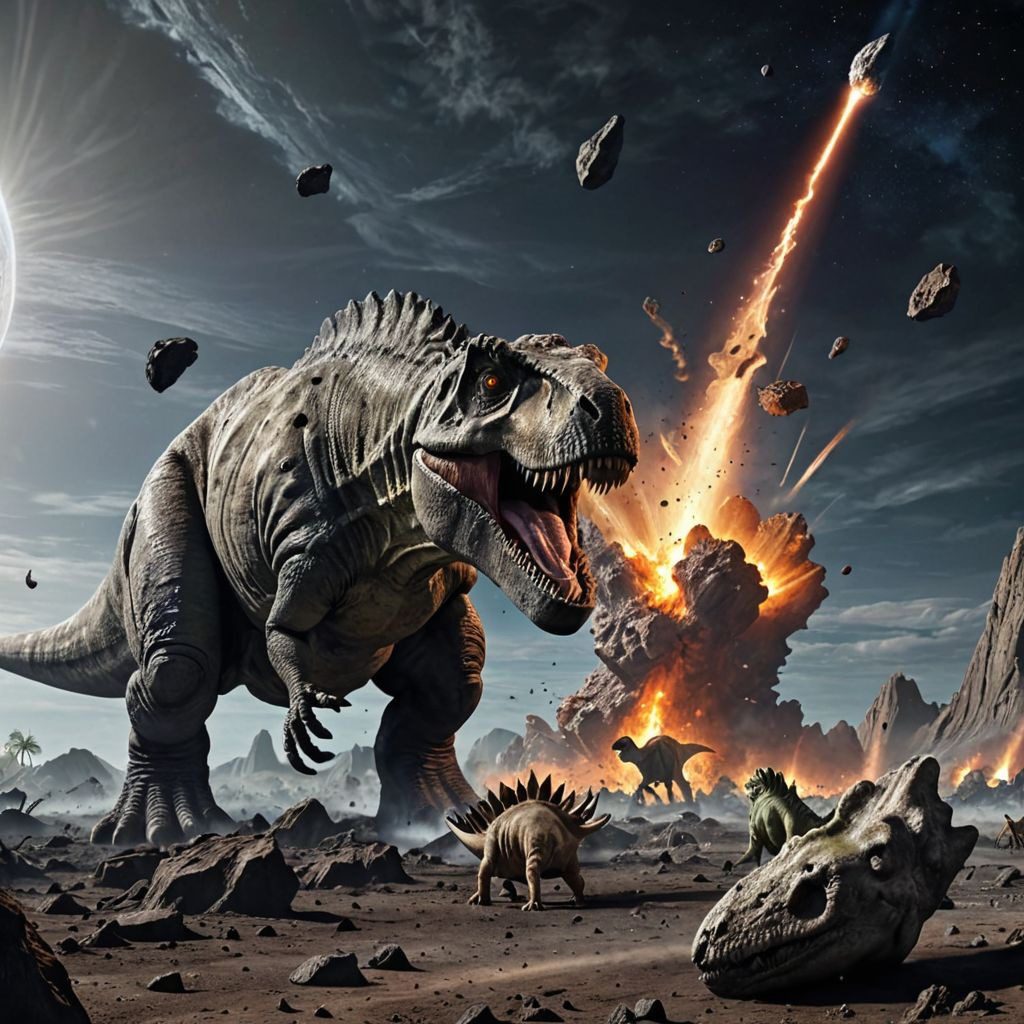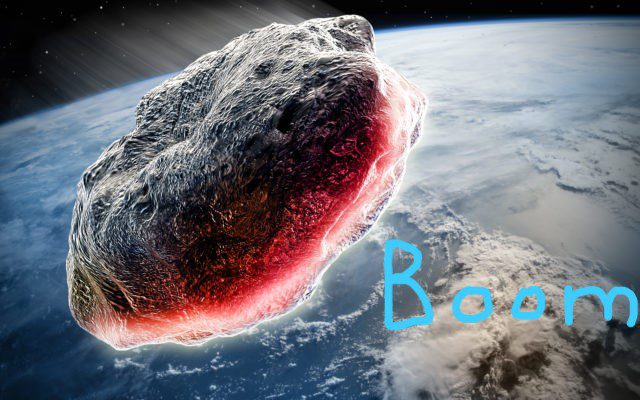I have always been keen to uncover the deepest secrets of the past that no expert has ever unveiled. I’ve also been incredibly obsessed with dinosaurs, especially their extinction, for as long as I can remember. I always seemed to ask myself the Did the dinosaurs actually go extinct because of an asteroid? type of questions. That’s why I recently proceeded to go on an expedition to Pripyat, Ukraine, one of the most abandoned places on Earth, in which I, after a long and precarious expedition, discovered an exquisite and powerful time machine. After weeks of examining the components and functions of the time machine, I finally activated it. It was time to travel 66 million years into the past and expose the truth of the eradication of the dinosaurs for once and for all.
As soon as I stepped out of the time machine, although I was nauseous from time-traveling such a long time into the past, one thing was conspicuous. An unfathomably large asteroid was zooming toward the earth like a tank shell. The smell of hot coal completely filled my nostrils to the point where I immediately fell to the ground comparable to when an NPC gets shot. As the rock approached the earth, the flaming arrow-like sound got increasing more explicit. As the figure of the asteroid became increasingly larger, it became more and more evident that the asteroid was merciless. I was trying to regain my conscience when suddenly-
*THUD*
The asteroid slammed the earth hard, in which the impact of the rock shook the ground like a magnitude 10.0 earthquake. I collapsed lifelessly onto the ground for a good five seconds before my desperate mind forcefully woke me up again. I slowly manuvered my way back to the time machine, and if my trauma wasn’t already severe enough, it was at that moment when I realized that my left leg was literally gone. I shrieked like a provoked squirrel and started flopping on the ground towards the time machine instead of crawling. I truly felt like an incompetent idiot while performing those dance moves, and I realized that I will never be the same again. Before I unhesitantly closed the door of the time machine, I caught one final glimpse of the scene, in which you see below.

The asteroid was shaped like a mango-flavored ice cream cone you would see at a typical ice cream place. The anxiety of the dinosaurs is an accurate representation of what I’m like in the morning when I oversleep on a weekday. That one dinosaur skull at the bottom right of my vision stared at me gravely and said to me It’s all over. The sun looked like a jellyfish that was about to devour the entire world. The fire danced around the nearby mountains, indicating a successful conquest. This felt like the end of the world, and it was for the dinosaurs.
Well, I guess that the asteroid theory proposed by experts was true after all. However, I must admit, you interpret events differently when you actually experience them as opposed to just hearing about it. Despite having this in mind, I am never using that blasted time machine ever again.


Very impressive work! I particularly like: “I shrieked like a provoked squirrel and started flopping on the ground towards the time machine instead of crawling. I truly felt like an incompetent idiot while performing those dance moves, and I realized that I will never be the same again.” The paragraph to the left of the dinosaur image is also very impressive.
A couple of language points:
1. You’ve made the same mix up with ‘conscience’ vs ‘consciousness’ that DrTerrettIsBald (I can’t believe I just wrote that!) made.
2. Don’t over do the ‘in which’. Most times you only need ‘which’. Check out the answer in this forum for help understanding the difference: https://ell.stackexchange.com/questions/70085/what-is-the-difference-between-which-and-in-which
Thanks for helping me realize the difference between conscience and consciousness. I now understand that conscience means an inner voice that guides one to interpret what is right or wrong, whereas consciousness means being aware of one’s surroundings. As for “in which” vs. “which,” I now understand that “in which” correlates two different units in the same sentence, which is unnecessary sometimes.
I love the detailed description and also the well executed similes
Nice
Yes, very nice!
true, it is very nice